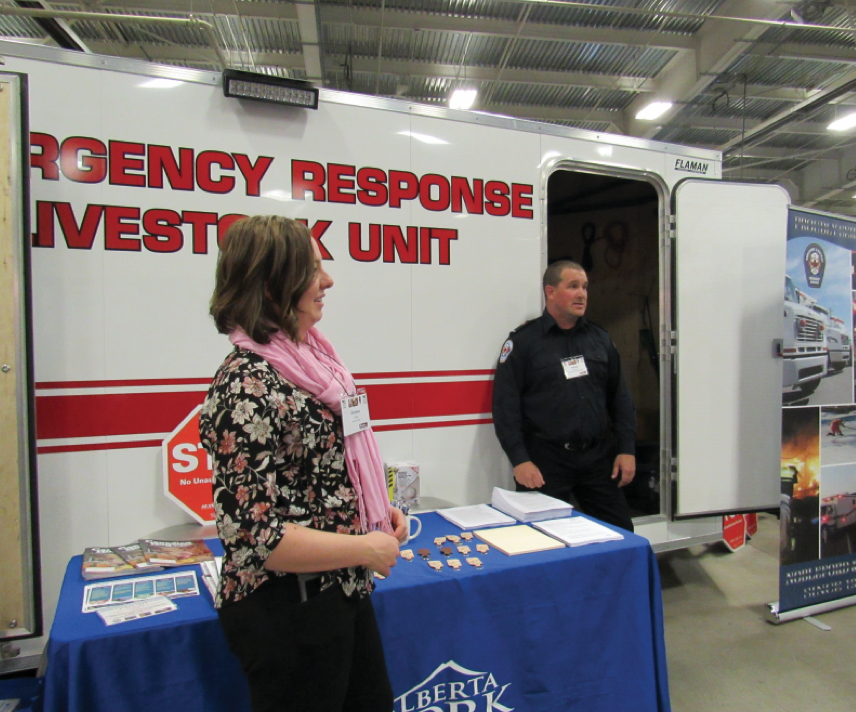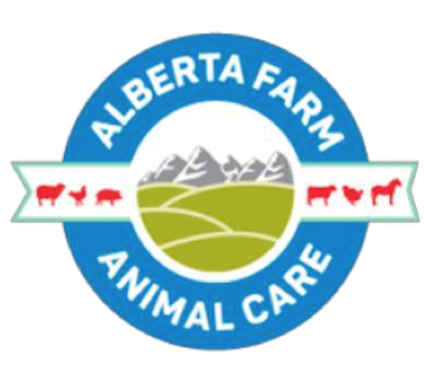
Commodity groups, rural municipalities and the Alberta SPCA have stepped into the void left with the collapse of the Alberta Farm Animal Care Association.
On March 1, AFAC Chair Merna Gisler announced that the groundbreaking farm animal health and welfare group established had dissolved because it was unable to secure enough funding from government and industry supporters.
Established in 1993 under the guidance of founding manager Susan Church, AFAC was created to promote better care for farm animals and to find help for producers whose livestock operations were at risk. Its work included establishment of the ALERT emergency line and creation of a network of 19 livestock emergency response trailers.
Darcy Fitzgerald, executive director for Alberta Pork, said that while his organization has continued to provide some funding to AFAC, much of its work had become redundant with the development of animal welfare programs within the larger commodity groups.
“We have this organization that was developed to try to help us all get to a better place. When Susan Church first started it and managed it, Susan did such an amazing and she really moved this all to something better,” said Fitzgerald.
“Over time . . . I think more and more organizations took on the responsibility themselves,” he said.
ASPCA President Doug Sawyer, who has also served as president of both AFAC and Alberta Beef, agreed with Fitzgerald’s statement and acknowledged that the association had collapsed under the weight of its own success.
“It’s sad to lose AFAC, because they over the years have played a very integral part in terms of helping agriculture, helping producers, and in terms of building a stronger reputation for agriculture,” said Sawyer.
“What’s happened is that the commodity groups have learned and built off of AFAC and have taken the role of this in house so they do it through their animal welfare committees, which kind of took away from AFAC’s mandate,” he said.
Shortly after AFAC announced is dissolution, ASPCA formally confirmed that it had taken over the ALERT emergency response line.
Whether the ALERT line will be continued over the long term has yet to be determined, said Sawyer. AFAC’s mandate differs from the ASPCA, in that calls to the ASPCA emergency line launch an investigation while calls to the farmer start a file.
“At Alberta SPCA, we can’t maintain the role of the ALERT line, but what we can do is answer those calls and try to try to help and support that way,” he said.
While ALERT had handled as many as 1,000 calls a year in the past, those numbers have dropped off dramatically in the last two years. Sawyer said he does not know why that happened.

Both he and Fitzgerald commented that the ASPCA operates differently from SPCA’s in other parts of Canada and North America because they do not have to sell sad stories to secure funding.
Sawyer said he is aware of other jurisdictions where animal welfare agencies operate from a different footing than Alberta.
“I’ve met with many animal welfare groups across Canada and in the northern states as well as one or two in the Southern states too and often times you hear them in the media out there championing getting somebody prosecuted and they’re all proud and happy of that.
“I consider that a failure. It’s through our education program and through our support program and working with producers, when we do have a file opened up on their farm,” said Sawyer.
“Our conversation has to end with the animal. It’s about the animal. It’s not about getting a pound of flesh out of somebody because they messed up or were unable to take care of their animal. There’s very few cases that I’ve seen that somebody deliberately set out to hurt animals.”
Alberta’s network of livestock emergency trailers will continue under the management of the various rural municipalities that have been involved since the program started, said Sawyer.
Alberta Beef Producers will likely take charge of the archives connected with those trailers so there will be a record available of what has been done in the past and what improvements could be made in future builds, he said.
The spirit of collaboration between commodity groups, governments and ASPCA will maintain and improve the paths AFAC forged in raising the bar on farm animal care, said Fitzgerald and Sawyer.
To report livestock in distress, please call the ASPCA emergency line, 1-800-455-9003 and choose Option 1.
The AFAC ALERT line remains in service at 1-800-506-2273 for livestock emergencies such as collisions or fire, questions about livestock care and access to a livestock emergency trailer. Livestock producers may also call the line if they need assistance or support in taking care of their own animals.
The Alberta SPCA is now responsible for the AFAC ALERT Line, ensuring continued support for animals in need. If you witness an animal in distress outside Edmonton and Calgary, please call the ALERT line at 1-800-455-9003. •
— By Brenda Kossowan





